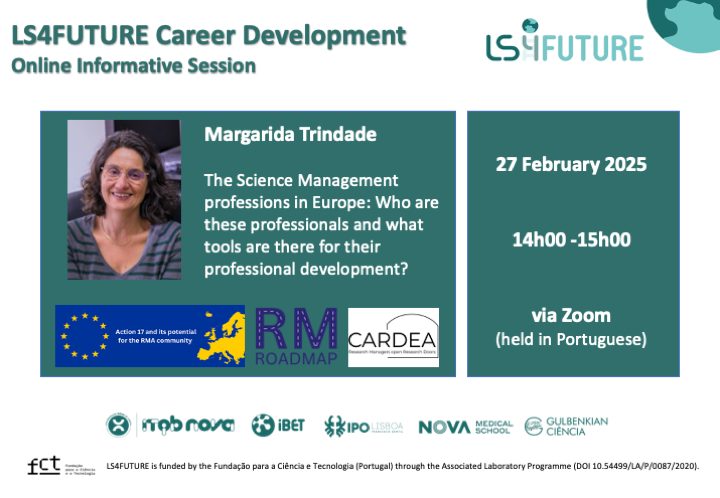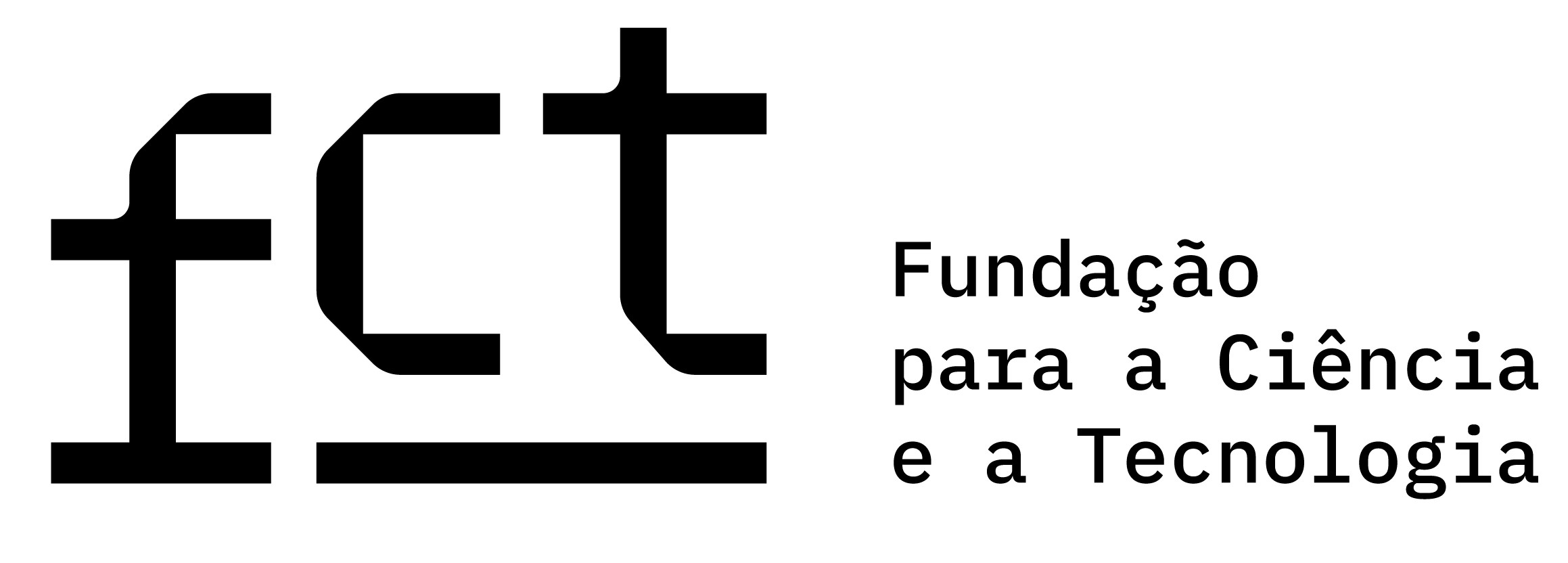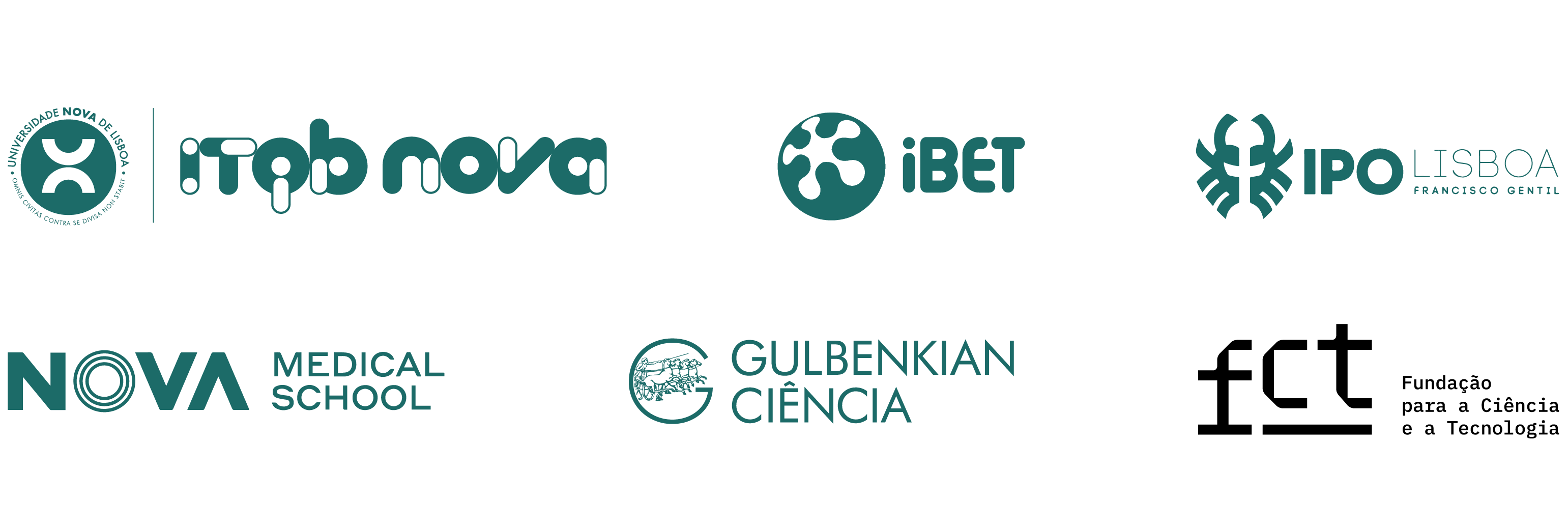“The Science Management professions in Europe” Online Informative Session
Dear LS4FUTURE Community,
We are pleased to invite you to an LS4FUTURE online informative session dedicated to the topic: “The Science Management professions in Europe – who are these professionals and what tools are there for their professional development?”. This session, presented by Margarida Trindade, Head of ITQB NOVA Science Funding Office, will present key findings from the RM-ROADMAP and CARDEA projects, as well as insights from the European Commission’s Research Management Initiative (ERA Action 17).
The Science Management professions in Europe – who are these professionals and what tools are there for their professional development?
📅 Date & Time: February 27th, 2pm
📍 Online via Zoom (link here)
The session will cover:
✅ A comprehensive overview of research management professions in Europe, based on an extensive survey.
✅ Mapping of existing training programs in the field.
✅ Newly developed tools, including:
- A European Competency Framework for Research Managers
- A Training Catalogue for career development in research management.
This session (which will be held in portuguese) is particularly valuable for science managers, researchers, and institutional leaders within LS4FUTURE, providing key insights into the evolving landscape of research management.
Meet our speaker:
Margarida Trindade
Margarida Trindade has been leading the Science Funding Office at ITQB NOVA since 2016. She is also an Invited Professor in the Research Management and Policy Postgraduate Program at NOVA FCSH. Previously, she assessed EARMA and ARMA’s training programs for a Research Management Certification, served as an expert evaluator and advisor for the European Commission, and participated in several European-funded projects focused on the professional development of Research Managers and Researchers. These projects include EUTOPIA-HEALTH, RM-ROADMAP, foRMAtion, TRANSPEER, IMpaCT, and others. M. Trindade obtained her PhD in Developmental Biology from University College London in 2000.
We look forward to welcoming you to this session.





